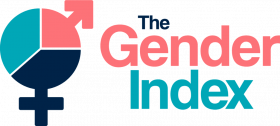We use cookies to effortlessly improve your experience on our site. Cookies also help us understand how our site is being used, so that we can keep making it better. You can read more about it in our cookie policy and change your settings here at any time.
How can we have national days to celebrate beer, but not one to celebrate women in enterprise?
.jpeg&w=1200&q=75)
The first-ever National Women’s Enterprise Week is taking place on 19-23 June, the brainchild of entrepreneur Alison Cork MBE. We caught up with Alison to find out why she launched the initiative and how to support the next generation of female founders.
Most big campaigns take months and months to prepare. But that didn’t stop Alison Cork, founder of the not-for-profit Make It Your Business and the force of nature behind the National Women’s Enterprise Week. She came up with the idea for the initiative to support female entrepreneurs in December and said, “It was one of those lightbulb moments. I did a bit of Googling and saw that America has a week celebrating female entrepreneurs but we didn’t. I’m quite spontaneous so I was determined to make it happen! We don’t support and appreciate female-led companies enough in this country. How can we have national days to celebrate beer and hedgehogs but we don’t have one to celebrate people who represent half the population and the economy?”
Research carried out to mark the first Women’s Enterprise Week in the UK is compelling. In a poll of 500 entrepreneurs, it found 34% of women start their business with £1,000 or less. And 25% of female-led companies turned a profit in their first month of trading compared to 21% of male-led companies.
“We should be championing female entrepreneurs'', says Alison. “We make up half the population, so the fact only one in four companies are owned or led by women is creating a £250 billion gap in our national revenue. Even if it were for only self-centred reasons you’d want nationally to be encouraging women to start their own business due to this impact on the economy.”
There’s also a huge benefit closer to home, explains Alison. SMEs make up 99.9% of the business population in the UK and she adds. “We all talk about the unicorns but there are only a few a year of these. We need to focus on the acorns - the tens of thousands of small businesses, many of which are run by women. These acorns might only be generating £500 or £1,000 a month for the owner but that can be life changing. That’s the person who suddenly has a degree of economic independence. That changes everything. It changes life choices. That’s like throwing a pebble into a pond. Those ripples become a wave of something bigger. It’s the sum of those parts - the more tens of thousands of small businesses we can generate the better it is for the individual, their families, their communities and the economy at large.”
According to the new research, when it comes to funding, 69% of women launched their company using personal savings compared to 65% of men. But this isn’t the main thing holding back female founders. “We’ve discovered the greatest barrier for women isn’t access to finance, it’s confidence. We’d love women to be as super confident in the way some men are. But we’re built differently, so let’s deal with that and create an environment where women feel comfortable to talk to other women. And if that’s what it takes to get them on the first step to running their business then fantastic.”
There are a number of events taking place this week, including a reception at the British Library, which The Gender Index chairman Jill Pay is attending, an event at the House of Lords, and an incubator for female founders.
There’s also a number of ways you can get involved. “We’re encouraging people all around the country to join in. That could be buying from a female-led business. Or if you run your own business, look at our Make It Your Business website and plan your own networking event.”
Simply starting a conversation around starting your own business can pave the way for change, believes Alison. “We need to normalise entrepreneurship. We don’t talk about it or teach it in schools - something I think we should be doing. If we did, it would partly solve the problem of the gender gap. From day one you’d be telling all children that this is completely normal. In the same breath as talking about being a doctor or a dentist, you’d talk about running your own business. That starts the conversation about, ‘What is a business?’ and ‘How do I know what business to run?’. Children are then having the conversation that most people don’t have until they are in their 20s, 30s, 40s or older. And as we all know, the older you get, the more you lose confidence, especially women.”
Alison is determined that the National Women’s Enterprise Week will become an annual event, and adds: “ It’s about supporting women. We all want to fulfil our potential.”
Find out more about National Women’s Enterprise Week, and how you can get involved.

